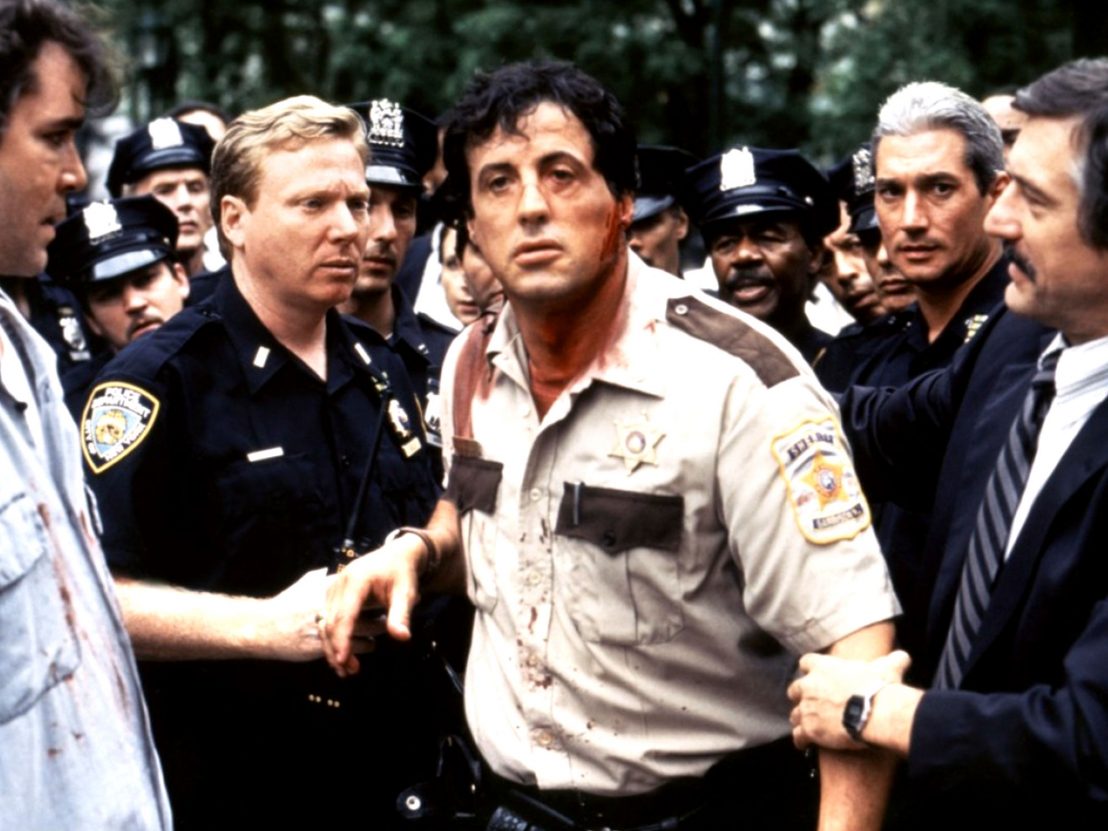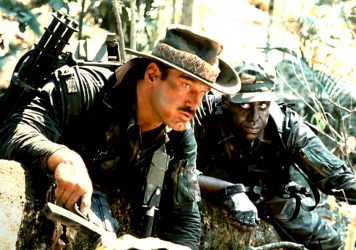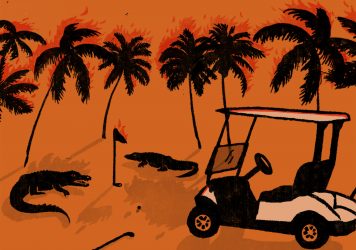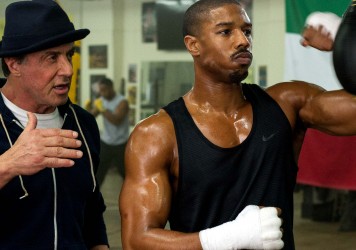
Sylvester Stallone wasn’t the first choice for the lead role in Cop Land. In fact, director James Mangold was reluctant to even meet the actor, whose recent films had been a string of forgettable action movies panned by critics and fans alike. “He’s become a cartoon of himself,” Mangold said at the time, wary of the prospect of a Planet Hollywood egomaniac interfering with his feature film debut.
This initial trepidation is perfectly understandable, given that Cop Land is not an action movie built for Stallone’s fanbase, and the actor is not a draw for a more discerning crowd in the same way that his co-stars are. But it was entirely for this reason that Stallone ended up being the perfect choice. Freddy Heflin, the film’s passive, lethargic sad sack protagonist, is by no means a vanity role. We are introduced to the character – a role which Stallone gained 40 pounds for – as he drunkenly plays a pinball machine. He’s a peripheral figure, on the sidelines of a conversation between a bomb squad agent from the city and Liotta’s assertive, wild-eyed officer.
Heflin doesn’t quite seem to fit in anywhere. He is partially-deaf as a result of saving a girl from drowning, the impairment having prevented him from becoming a big city cop. He gazes across the Hudson River and dreams of making it there, while protecting the neighbourhood of the cops who work there. Similarly, Stallone stands out like a sore thumb on the film’s poster, flanked by Harvey Keitel and Robert De Niro. These acting heavyweights were still turning out acclaimed work with the likes of Martin Scorsese and Quentin Tarantino, while Stallone was only just returning to the game, eager to prove himself. When Heflin is denied entry to a party by Keitel’s Ray Donlan, his concerns wholly dismissed, the chasm between the actors is hard to ignore. But Donlan underestimates Heflin, just as many have underestimated Stallone down the years.
While Heflin doesn’t profit from the corruption that Donlan and several other officers indulge in, he is complicit by sharing their indifference for these illegalities. “Their ambivalence is contagious”, Internal Affairs agent Moe Tilden (Robert De Niro) warns him, and he’s right to note both Heflin’s and Stallone’s greatest opponent: inertia. Heflin’s heroic rescue, which he refers to as “the best thing I ever did with my life”, is long in the past, much like Stallone’s own glory days. Before becoming overshadowed by the patriotic melodrama of their sequels, Rocky and First Blood were human stories bolstered by excellent writing and acting.
By 1997, Stallone was resigned to churning out generic action fare, and his name was more commonly associated with Judge Dredd than his earlier Oscar-nominated work. Heflin too seems unconcerned with the integrity of his work, wilfully ignoring the sexism his partner receives from fellow officers and the glimpse of an allegedly dead cop in the backseat of Ray’s car. It takes him a while before he awakens from this slumber, and by then Internal Affairs has no time for his triumphant return. “I offered you a chance to be a cop and you blew it!” Tilden yells at him, echoing what many thought of Stallone’s attempt to be taken seriously again.
Eventually, Freddy purges himself of the years of suppressed rage in a cathartic shoot-out. It’s not important that he saves the day, but that he walked with dignity and purpose. Stallone has done this time and time again, proving himself as a capable actor and writer after a series of clunkers, only to repeat the cycle once more. “It’s awkward defending Sly,” Mangold said in a recent interview, “because he’s largely responsible for the way he’s misunderstood.”
Stallone’s performance has been praised as possibly his best, but after the film underperformed at the box office his career stayed on much the same course as before. He struggled to land decent roles after Cop Land, returning to low-rent action for a number of years before eventually reprising his most iconic characters in Rocky Balboa and Rambo. Unlike Freddy Heflin, Stallone wasn’t welcomed inside. The pantheon of great actors still lies behind a closed door. But if his penchant for comebacks is anything to go by, he’ll come knocking again.
Published 16 Nov 2017

The larger-than-life catchphrase machine epitomised the hyper-masculinity of ’80s action cinema.

How a ’90s indie movie tried (and failed) to survive stolen golf clubs, an MMA pioneer, Mexican crocodiles and the Stallone brothers.

By Ashley Clark
A franchise is reborn in sensational fashion courtesy of director Ryan Coogler and star Michael B Jordan.